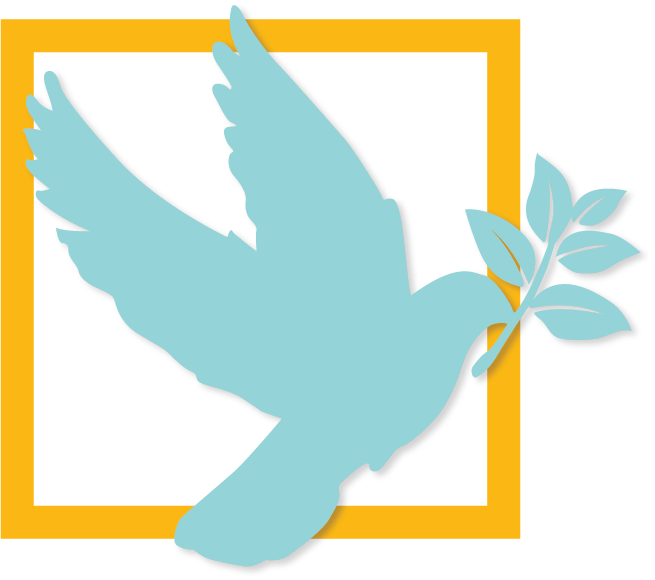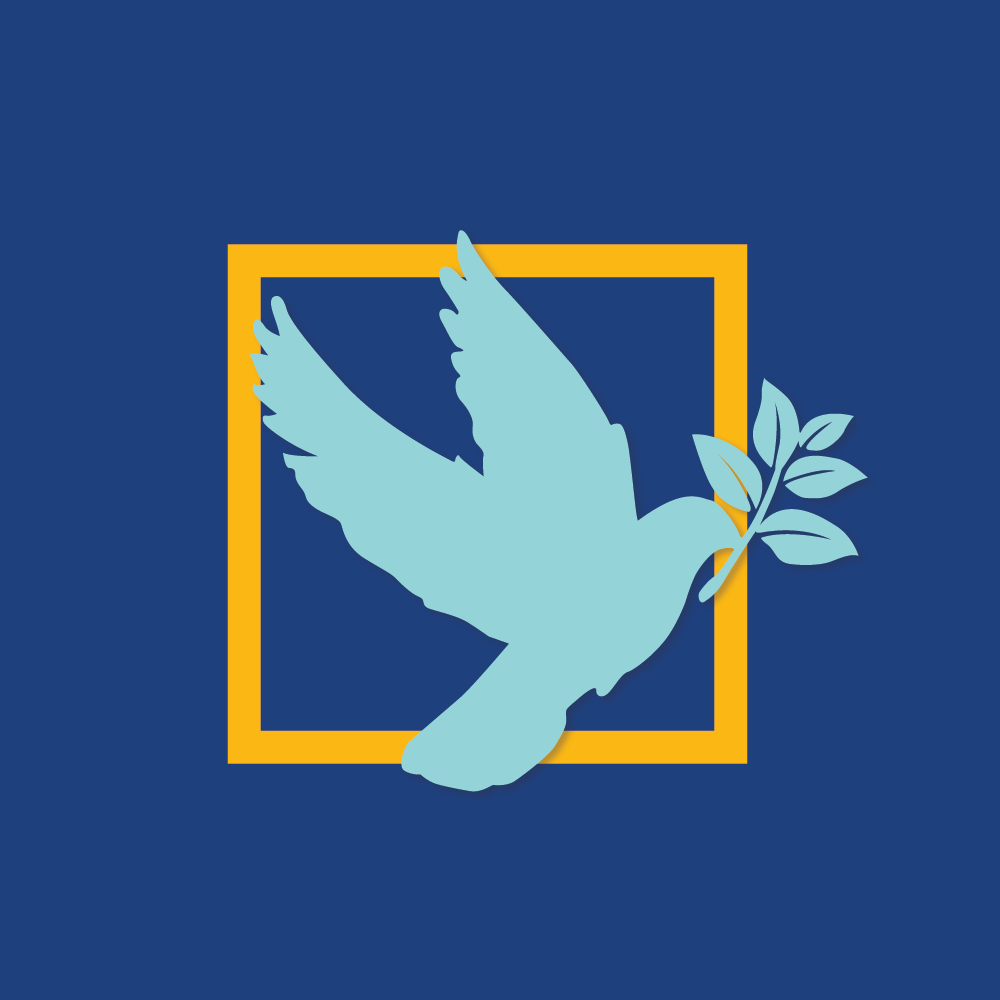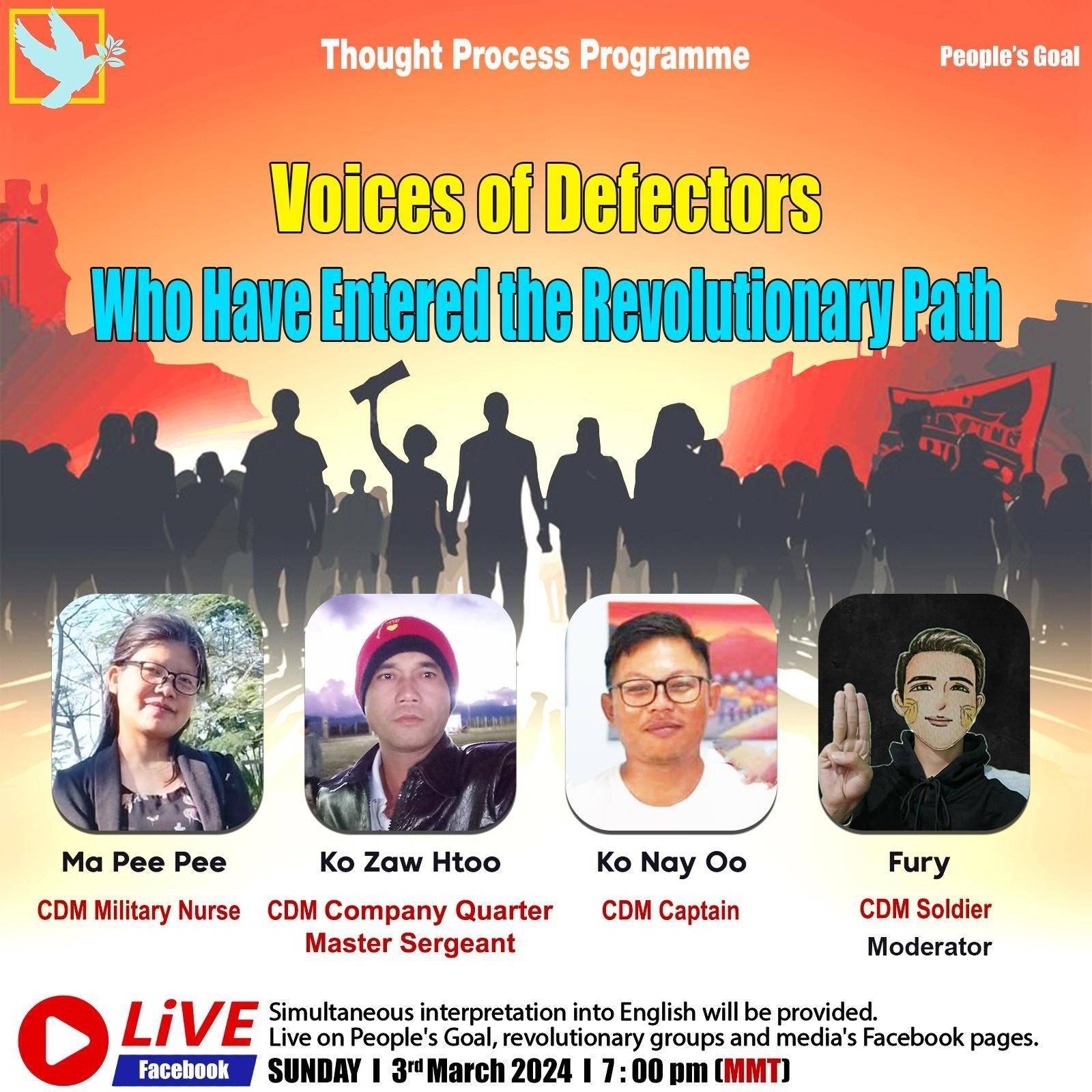Voices of Defectors Who Have Entered the Revolutionary Path
Voices of Defectors Who Have Entered the Revolutionary Path
March 3, 2024
Q. Did you experience abuse and discrimination in the Military? How did you get out?
Ma Pee Pee (CDM Military Nurse): I used to work in a big military hospital with two wards: a VIP ward for colonels and above, and a general ward for non-commissioned officers and privates. All supplies and medicines were reserved first for the VIP ward. In the general ward, patients were always told medicines were unavailable and that they would have to buy them despite making hardly any salary. In the VIP ward, medicines were always free, and whatever they needed was procured.
I come from an ethnic area, and I am Christian. Knowing that I was supposed to attend church on Sundays, they always scheduled me to work on Sundays and Christian holidays. I requested not to work night shifts during Christmas so that I could attend mass. My manager scolded me and told me I should just pray at home and do my duty. I was constantly discriminated against in this way for being Christian and from a minority.
I knew I would struggle if I joined the CDM, but I was determined to get away from the system that never treated me well. I think it is important to always try to do what is right and to be free.
Moderator: My roommate drank insecticide to commit suicide. We took him to the military hospital, but it was late at night, and because he was not an officer, he was not allowed in the VIP ward. The general ward was not staffed that late. We spent a lot of time calling people to get nurses and doctors to come, but it was too late.
Q. How does the military control the minds of officers and soldiers?
Ko Zaw Htoo (CDM Company Quarter Master Sergeant): Most are led to believe their job is to serve the people. However, recruits are not adequately trained in military skills. They are broken down and instilled with fear so that they will perform their role to keep the system going.
Soldiers are promised a salary, and then they are told they are required to save 20,000 kyats and invest 30,000 kyats. These are not mere suggestions; the amounts are automatically deducted from their promised salaries.
Families are isolated from the outside world, and women and children are forced to serve in security and labor roles. When soldiers die in the field, they say that they went AWOL and withhold benefits for the widows and children. Instead, they pocket the soldiers' salaries.
Min Aung Hlaing and other top generals have no real military experience. They are bureaucrats. They have almost no capable combat leaders. The PDFs are much better fighters, and they have much higher morale.
Q. What is happening with the new conscription law?
Ko Nay Oo (CDM Captain): High-ranking officials support the conscription law because it will not affect their families. Their own children will find high positions, and the new conscripts will prolong their status. On the other hand, low-ranking officials are terrified of the new conscription law. Most low-ranked soldiers are older than their commanding officers, who treat them abusively. Frustrations build up, leading to brutality in the field. These soldiers are basically slaves in the military system, and this is how they feel. They want out; they want a future for their children but feel stuck. Soldiers' wives are not paid, but they are obliged to serve as unpaid security guards.
Q. How is it for you in the CDM?
Ma Pee Pee: I have felt free, healthy, and at peace in the CDM. I am free to go to church and live life on my terms. When I was in the military, I was lost in my soul. I'm sure many others feel that way. I hope more people in the military will think about whether it is worth living a life under such oppression and unrighteousness.
Ko Zaw Htoo: We requested all civil servants to stop participating in the military system. When I was a soldier, we were trained to serve the people. After the coup, however, it was clear that they were treating the people as their enemy. They pretended that the country was in an emergency, so they had to protect the country. But this was not true; they were terrified to hand control of the country to the people. That is why they turned the soldiers against the people.
Recently, one battalion in Rakhine murdered a journalist, and the whole system ignored this. Because of these kinds of crimes, the military has powerful PDFs closing in on them.
When I grew up, I had no opportunities and no skills. That is why I joined the military. Nevertheless, I tried to live with dignity, and when that became impossible, I joined the CDM.
Q. How should the conscription law be countered?
Ko Nay Oo: The NUG should do more than just tell people to join the PDFs. It's more complex. Some people don't want to be part of the armed struggle. They can, however, create diverse sectors in which people can participate. Some might be open to teaching; some might be able to serve as medics. There needs to be a nationwide network that can assimilate as many people as possible.
Regarding war crimes, this has always been a problem. There has always been impunity. The system is such that soldiers are like chickens, always looking for food. Colonels are like lions that roar and get their subordinates to get food for them. Generals are like hippos or whales who just open their mouths and food goes inside.
Before the coup, the military had a lot of support. Aung San Suu Kyi and all other major politicians gave them respect. It used to have some standing. After the coup, however, people don't even want to wear the color green. Recently, after Operation 1027, entire battalions and regiments have surrendered. They are desperate to find recruits. If soldiers and police want to survive this revolution, they must leave the military.
Ko Zaw Htoo: New CDMrs will have it easier than those of us who joined early. Networks are ready to support them. The military has always abused them, but they have the opportunity to live a better life. They receive orders from commanders who do not care if they live or die. It is important for them to leave the military as soon as they can.


